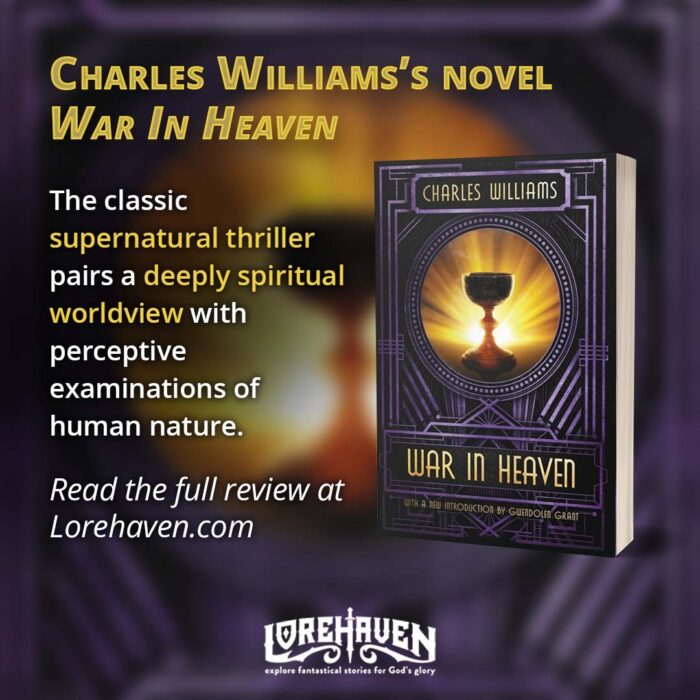War in Heaven
Charles Williams’s classic supernatural thriller, War in Heaven, answers the question: What if the Holy Grail was discovered in a small country church in England? After a visit to a London publisher, the Archdeacon of Fardles learns that the old, forgotten chalice in his rectory is in fact the Cup of Christ. Despite his doubts, the Archdeacon finds himself called into a battle against dark forces. Williams’s prose is primarily lean and efficient but can feel overwrought in more esoteric scenes. Characters like the Archdeacon offer inspirational faith and poise in difficult situations, and the villains, especially the elder Mr. Persimmons, serve convincing representations of those who follow selfish ends. War in Heaven pairs a deeply spiritual worldview with perceptive examinations of human nature and a complex plot.
Best for: Fans of English social drama and supernatural stories; older teens and adults.
Discern: Mild language; villains engage in murder, sacrifice, witchcraft, and blasphemy; physical and spiritual violence targeting women and children; discussions of faith, prayer, and Christian practices (especially relating to Anglican vs. Catholic perspectives); a mythical character is closely identified with (but not as) Christ; one character uses racial slurs against another.




























Along with “There once was a boy named Eustace Clarence Scrubb, and he almost deserved it,” (Voyage of the Dawn Treader, by C. S. Lewis) and “The building was on fire, but it wasn’t my fault,” (Summer Knight, I think, by Jim Butcher), Charles Williams’ opening line in War in Heaven is among literature’s best.
“The telephone was ringing frantically, but nobody was there to answer it but the corpse.” Or something like that. Sure beats “It is a truth universally acknowledged, …” by Jane Austin (P&P) or Lewis’ own “Marriage was ordained, thirdly, …” in THS.